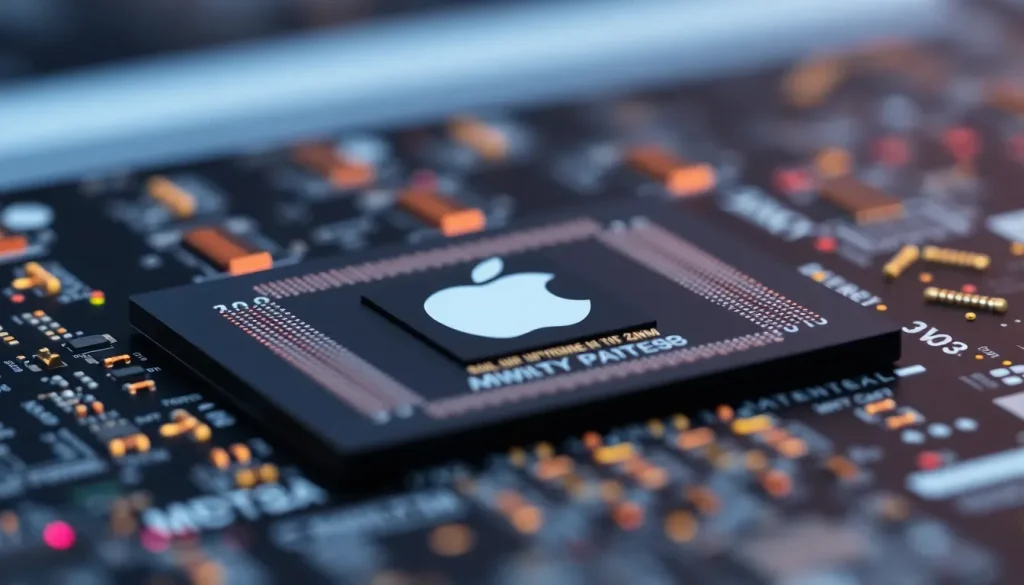Apple not in talks with TSMC for A16 process, focusing on 2nm chipsets

The world of semiconductor technology is rapidly evolving, and Apple has consistently positioned itself at the forefront of these innovations. As the company gears up for its next generation of chipsets, it becomes increasingly clear that the collaboration with TSMC (Taiwan Semiconductor Manufacturing Company) is crucial. Yet, recent reports indicate that discussions between Apple and TSMC regarding the A16 process have not yet commenced, raising questions about future developments and the competitive landscape. In this article, we delve into the implications of this situation and what it means for Apple's upcoming chipsets.
Apple's upcoming chipsets and TSMC's advanced manufacturing processes
Apple's strategy has always revolved around leveraging the latest manufacturing technologies to ensure optimal performance and efficiency in its devices. The upcoming A20 and A20 Pro chipsets are set to be the first to utilize TSMC's cutting-edge 2nm process, showcasing Apple's commitment to adopting new technologies swiftly. This approach not only enhances performance but also gives Apple a substantial edge over its competitors in the ever-evolving tech market.
Rumors suggest that Apple plans to introduce a total of four chipsets based on this advanced lithography, underscoring its ambition to stay ahead in the competitive smartphone and computing landscape. Following the 2nm technology, Apple is expected to transition to TSMC’s A16 node, which represents a further leap to 1.6nm technology. However, current reports signify that no formal negotiations have taken place between Apple and TSMC regarding this node.
Current status of negotiations between Apple and TSMC
Recent insights indicate that TSMC is focusing on catering to other clients, particularly NVIDIA, which has secured orders for A16 chips aimed at developing high-end AI GPUs. A report from a Korean media outlet, EBN, has reiterated that Apple’s mobile application processor (AP) is not currently engaged in discussions with TSMC, which raises questions about the company's immediate plans for its next-generation chipsets.
Despite this lack of communication, Apple has reportedly secured over half of TSMC's initial supply of 2nm production capacity. This allocation is crucial as it will serve not only the iPhone 18 series but also the upcoming M6 chip expected in the new MacBook Pro models. This strategic acquisition indicates that while talks regarding the A16 node remain dormant, Apple is still making significant advancements in its chipset development.
Implications of Apple's chip strategy
The absence of negotiations for the A16 process could have several implications for Apple:
- Market Positioning: Without the latest A16 technology, Apple may face challenges in maintaining its competitive edge against rivals who are continuously innovating.
- Product Launch Timelines: Delays in securing advanced chip technology could impact the launch timelines for future devices, including iPhones and MacBooks.
- Performance Expectations: Consumers and industry analysts may have heightened expectations for performance enhancements that could be unmet if Apple cannot integrate the latest technologies.
Future manufacturing advancements: The path to 2nm N2P and beyond
Looking ahead, Apple is likely to move towards TSMC's improved 2nm 'N2P' process for its A21 and A21 Pro chipsets. This technology is expected to offer significant performance enhancements and increased power efficiency. However, Qualcomm is also rumored to be utilizing this lithography for its Snapdragon 8 Elite Gen 6 chipset, which could create additional competition in the market.
Moreover, TSMC has initiated steps towards developing its A14 node, or 1.4nm technology. This ambitious project involves substantial investments, estimated at NT$1.5 trillion (approximately $49 billion). Although production is not expected to ramp up until 2028, the advancements being made in this area could potentially open new avenues for Apple and its competitors, affecting the overall dynamics of the semiconductor industry.
Challenges and considerations for Apple's future
While Apple has consistently demonstrated its ability to innovate, it faces unique challenges in its partnership with TSMC:
- Supply Chain Dependencies: Relying heavily on TSMC for advanced chip manufacturing could introduce vulnerabilities, especially if negotiations do not proceed as expected.
- Competition for Resources: As more companies seek advanced semiconductor technologies, Apple may find itself in competition for manufacturing resources, which could limit its growth potential.
- Technological Hurdles: Transitioning to new manufacturing nodes is not without its difficulties, including potential delays and unforeseen technical challenges.
As Apple navigates these challenges, it is essential for the company to solidify its strategy and continue fostering its relationship with TSMC and other partners. The semiconductor industry is poised for rapid transformations, and Apple's ability to adapt will ultimately determine its success in the coming years.
For those interested in a deeper dive into the implications of Apple's chip strategy, the following video offers valuable insights:
In conclusion, while Apple is making significant strides with its upcoming chipsets, the lack of current negotiations with TSMC regarding the A16 process suggests a critical juncture in its technological development. With industry dynamics rapidly changing, Apple's next steps will be integral to its long-term strategy and market positioning.




Leave a Reply